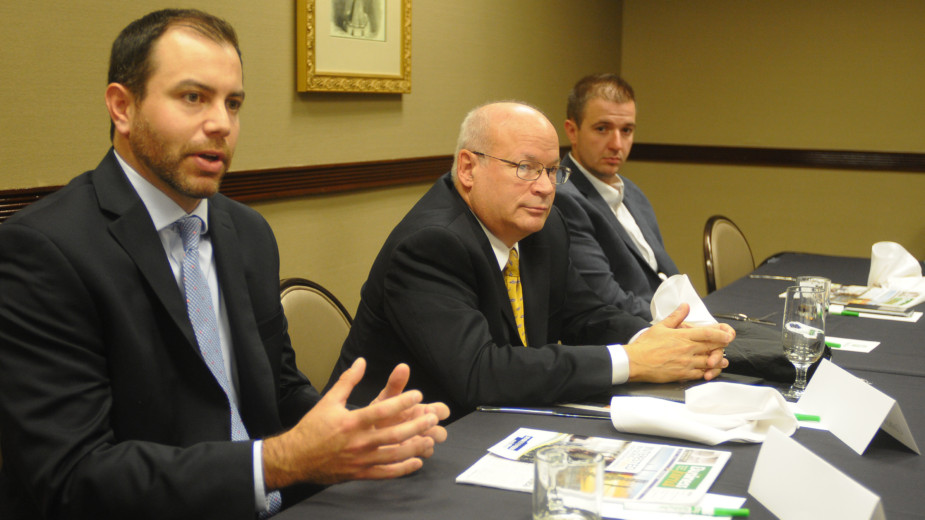At Roundtable, CPAs Tell How They Help Businesses
BOARDMAN, Ohio – Entering data into accounting software that does the calculations and work for you should save bookkeepers a lot of time.
However, when a bookkeeper enters data into software – a seemingly simple and routine task — he has to enter it correctly. If he doesn’t, the CPA advising the company can spend twice as much time finding and correcting the mistake, Tim Petrey says.
Petrey, managing partner of H.D. Davis CPAs LLC in Liberty says that the widespread adoption of accounting software such as Quickbooks and Sage 50c (former Peachtree) has “helped us adapt to the changing world much quicker.”
The software helps small-businesses track and stay atop of their finances easily and at less expense – unless the person who keeps the books gets it wrong. “It takes us longer to fix it,” said Rich Lutsch, partner in Byler Wolfe, Lutsch & Kampfer CPAs LLC, Salem.
“Some still bring in their check stubs to us,” he related, rather than risk making a mistake on their desktop computer.
That is one of the takeaways from the roundtable The Business Journal held last Thursday when seven CPAs from public accounting firms told how the profession has changed and how they meet their clients’ needs.
The edited verbatim transcript of the roundtable will appear in the November issue of The Business Journal.
Participating were Petrey and Lutsch; Ben DiGirolamo of HBK CPAs and Business Consultants; Mike Humphries of Colella & Humphries; Neil Kaback of Cohen & Co.; Joe Gabriel of Packer Thomas; and Bruce Flyak of Bodine Perry LLC.
QuickBooks and Sage allow CPAs to easily view their data and help them make better business decisions.
The software fits in with the lifestyle of small-business owners. “It is making the communication gap less wide [between CPAs and their clients],” he said, and helps them focus on managing their businesses better.
The discussion also touched on the increasing education requirements to become a CPA, the growing number of certifications CPAs are studying for and earning, recruiting challenges, preparing taxes and conducting audits.
The panel was also asked a hypothetical: what aspect of the tax code they would repeal or reform if given the authority to do so.
Readers can find out in the November issue of The Business Journal, which should be delivered in their mailboxes Oct. 25.
Copyright 2024 The Business Journal, Youngstown, Ohio.



